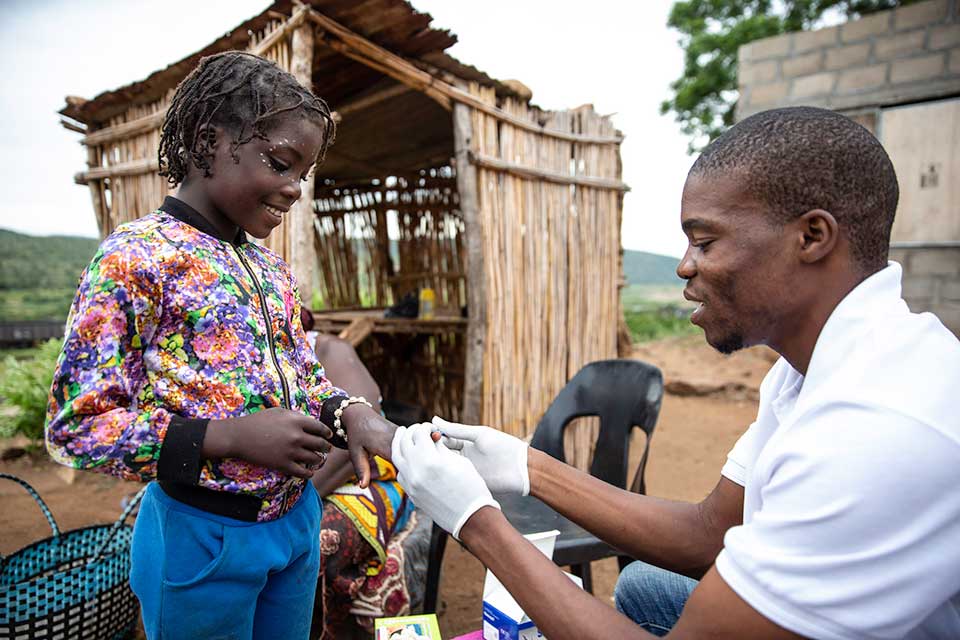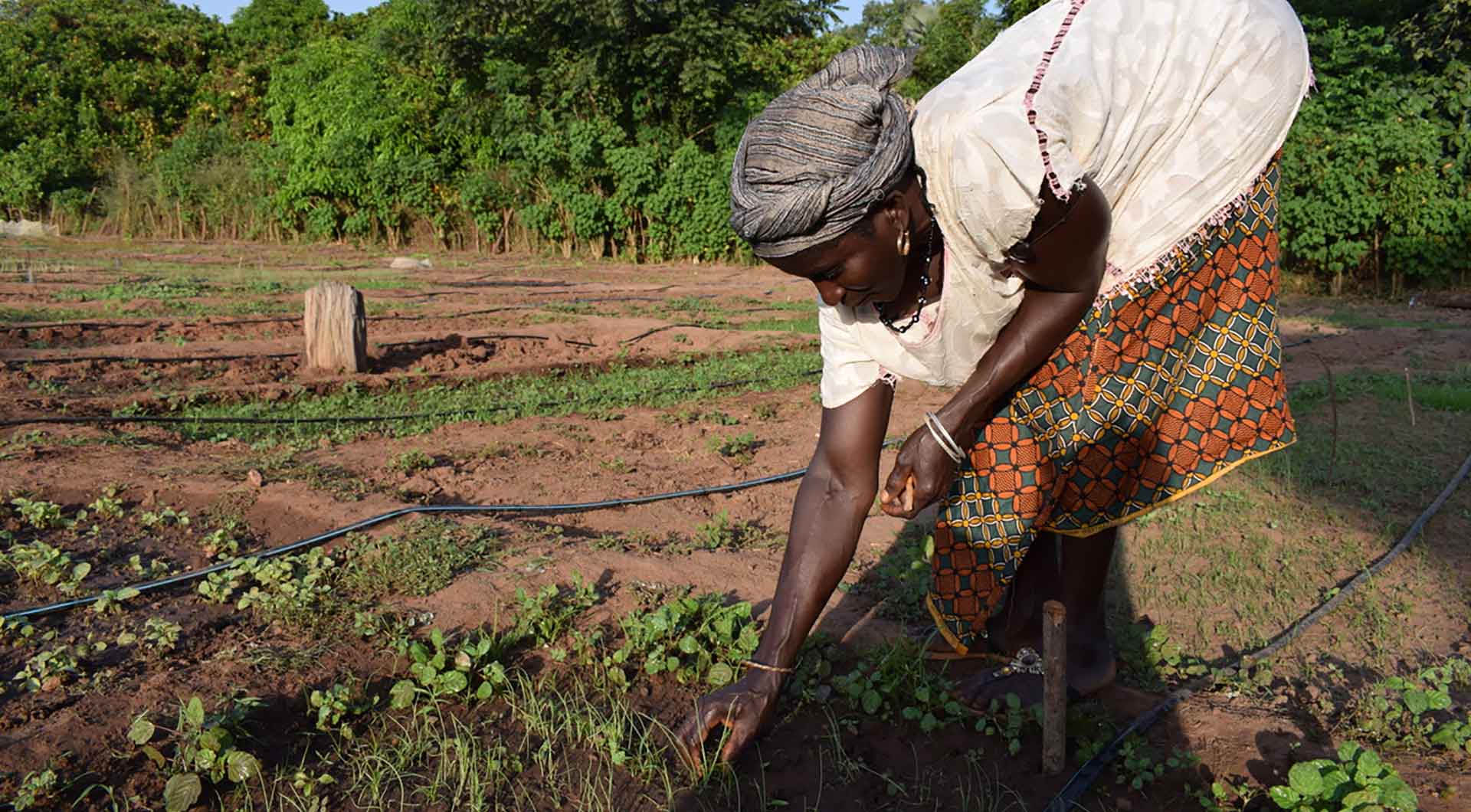
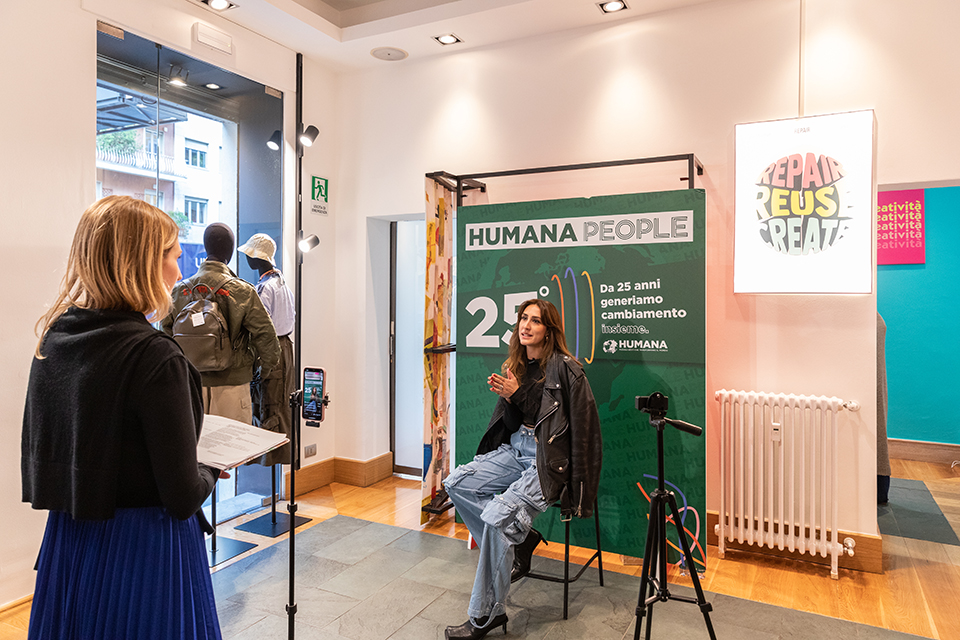
European Union (EU) Green Week 2023 focuses on environmental protection, conserving biodiversity, circular economy and need for zero carbon emission. The event led by European Commission will begin on 3 June and end on 11 June 2023. We will take the opportunity to highlight Humana People to People second-hand clothes collection and sales in Europe, the USA and the global South.
Our engagement with collection and sale of second-hand clothes creates a win-win situation for a sustainable future and generating income key in funding our Humana People to People development work in the global South. By selling second-hand clothes we give access to quality clothes at affordable prices to the people purchasing; we contribute to job creation in used clothes supply chain; and we actively contribute to the reduction of carbon emission.
EU Green Week 2023 raises awareness on the importance of protecting the environment and promoting sustainable lifestyles. The EU Strategy on Sustainable and Circular Textiles seeks to reduce the environmental impact of the textile industry, promote clothing reuse, and limit overconsumption of mass-produced clothing. On 6 and 7 June there will be an EU Green Week Conference about the latest developments on EU environmental policies and efforts to save the planet. EU will celebrate the progress made and make a call to action in protecting the environment. Influential decision makers, leading environmentalists, civil society and other stakeholders get an opportunity to meet and engage in environmental matters.
Humana People to People has collected and sold second-hand clothes – 127,000 tonnes in 2022 alone – for decades. The protection of the environment has been combined with generating surplus income which in turn has improved the living conditions for millions of people who face environmental degradation, illiteracy, hunger, diseases, lack of skills, poor sanitation conditions among others. It all starts with giving an opportunity to people in the developed countries to donate their own clothes to Humana People to People with the end goal of creating value in and from used clothes.
A steady growing awakening to realise the damaging social and environmental impacts of ‘fast fashion,’ leads many to demand sustainable alternatives. 14% of EU citizens purchased used clothes in 2020. Globally, projections for Compound Annual Growth Rate for used clothes in the next decade tell it will increase to 14.8% from 7.1% (2017 and 2021). Second-hand clothes industry can create up to 120,000 new green jobs if all discarded clothing in Europe were collected and sorted. This is an increased demand for skilled professionals managing, sorting, processing and other indirect labour services supporting environment protection.
Giving clothes a longer lifecycle can help offset negative environmental impact. Our work is guided by the European Union’s Waste Hierarchy, where after prevention of waste, reuse is best as it gives greater environmental benefits than recycling, which in turn is better than energy recovery or putting in landfills.
According to the World Bank (2019), the textile industry produces 10% of the world’s carbon emission, more than international flights and shipping combined. It’s also the second largest consumer of the world’s water supply. By buying one kg of second-hand clothes (about five items) instead of buying new clothes, one is contributing to the reduction of carbon emission equivalent to 6.1 kg. Thus, reuse of clothes and shoes is very important for the environment and an important contribution towards fighting global warming and climate change.
Globally, people are discarding large quantities of textiles, and it is turning out to be more complex due to emerging pressure derived from population growth, increasing fast fashion consumerism, fast-changing lifestyles and some segments of populations having more disposable income. Areas that are seeing the greatest urbanisation trends have many people trapped in urban poverty. Second-hand clothes business avails a viable option to tens of millions of people who barely makes it in towns and cities, by giving access to quality and affordable used clothes. Second-hand clothing is part of promoting the circular economy and environmental protection policies enshrined in the EU Waste Hierarchy. Thus, reuse of clothing reduces environmental harm and reduces overconsumption of precious natural resources.
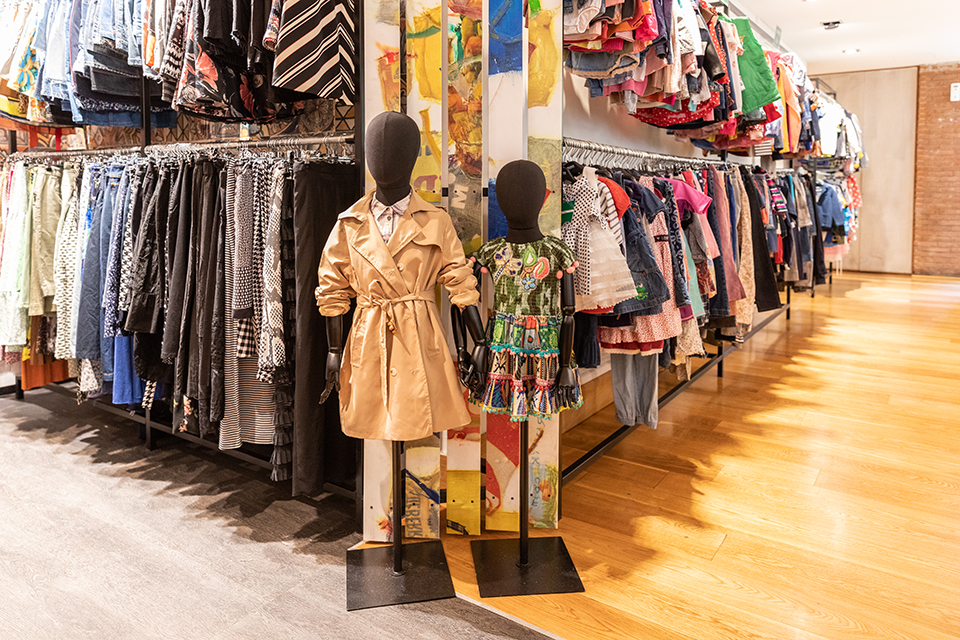
The production of goods and management of waste affect air quality, water quality, and public health, and contributes to climate change. Open dumping sites contaminate nearby water bodies with organic and inorganic pollutants. Incineration of waste emits a variety of greenhouse gases while landfills emit methane gas, as waste decomposes. Saving the planet becomes a difficult proposition as the environment degradation grows.
For more thant 40 years, Humana People to People organisations have worked with collection and reuse of textiles as a core income generating activity for the network. Since our beginnings, the activity has been an opportunity to ensure the financial sustainability of our development work in sub-Saharan Africa, Asia, Central and South America. Today, it has expanded into a concerted effort towards environmental protection; reducing carbon emissions and waste, as well as improving natural resource efficiency through the circular economy model.
In 2022, members of Humana People to People in Europe and the USA collected 127,000 tons of second-hand clothes. With this, 770,000 tonnes of CO2 emissions have been saved. We strive to maximize the reuse of collected textiles thus we have in place a detailed sorting and distribution system supporting different parts of the world, which extends the supply of used clothes to the widest possible users across the globe. Through the long-term relationships built across the sector, members pf Humana People to People are able to ensure a high level of control and transparency throughout the supply chain.
As a frontrunner of the circular economy in used textile, Humana People to People members developed a Code of Ethics for the growing second-hand clothes industry. Approximately 11,300 jobs were created in logistics, sorting and sales, either as formal employment or in the informal sector linked to the trade and handling.
To facilitate changing consumption patterns in developed countries, members operate 553 Humana shops in 22 countries in Europe and the USA making it possible for 11.4 million people in the northern hemisphere to buy quality and durable second-hand clothes in the year 2022. In Africa and Belize there were 164 wholesale and retail shops which gave an opportunity to 19 million people to buy second-hand clothes in 2022.
The Humana People to People second-hand clothes business creates jobs. In Europe, the Middle East, and the the USA, 6 100 people work in collections, sorting centres and shops. They take good care of the collected clothes and make sure each item is put to the best possible use; reuse and recycling.
The income raised through sales of second-hand clothes is instrumental in funding our Humana People to People development work. In 2022, over 23% of the total income funding our social projects in the global south was raised through selling second-hand clothes in global north and south. The surplus income is playing a critical role in improving the plight of the disadvantaged communities. A key part of the funds has made it possible to construct teacher training colleges, pilot new health and sustainable agriculture project concepts which has gone on to expand at scale in sub-Saharan Africa, Asia and Central and South America. Recently, part of the income realised from second-hand clothes has made it possible to kick-start climate emergency recovery projects which are responding to climate change induced disasters in Zimbabwe, Mozambique and Malawi following the devastating impact of Cyclone IDAI, Cyclone Freddy and other hydro-meteorological linked disasters.
One of our member DAPP Zambia engages in the sale of second-hand clothes for many years across Zambia. The sale of second-hand clothes raises surplus income going towards supporting DAPP Zambia’s development projects. Good quality clothes are available for people who otherwise cannot afford to buy clothes of such a standard. Sales cover both urban and rural areas, while shops are often located in cities. The clothing is a vehicle for poverty reduction, helping to create jobs and grow both local and national economies.
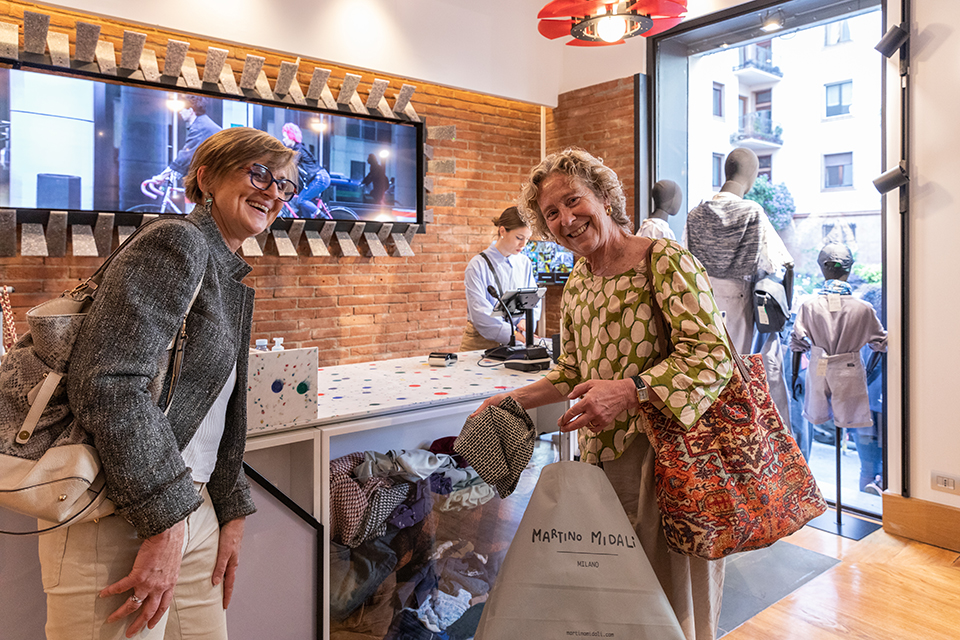
“After I lost my husband in 2016, I decided to start buying second-hand shoes and some little clothes for resale. I got courage following the support and business knowledge from DAPP’s local retail shop. I came to realise that that despite having little capital I can still order several children’s ware items that would help me and my family earn extra income. Over the years, reselling used clothes from DAPP has made it possible to support my three children’s basic needs mostly supporting their education and building a house for my family,” says 36 years old Cecelia Kalosa from Solwezi in Zambia.
Over the last 25 years, our member in Europe, Humana People to People Italia s.c.a.r.l (Humana Italy), has developed a transparent and verified supply chain for used textile; starting with the collection of second-hand clothes in collaboration with 1 200 municipalities across Italy. Humana Italy’s goal is to ensure that all clothing and footwear is used in the best possible way for the benefit of people and environment. In 2022, Humana Italia collected 21,000 tones of clothes with 67.5% of the collected clothes going for reuse, 25.5% for recycling, and 7% for energy recovery.
